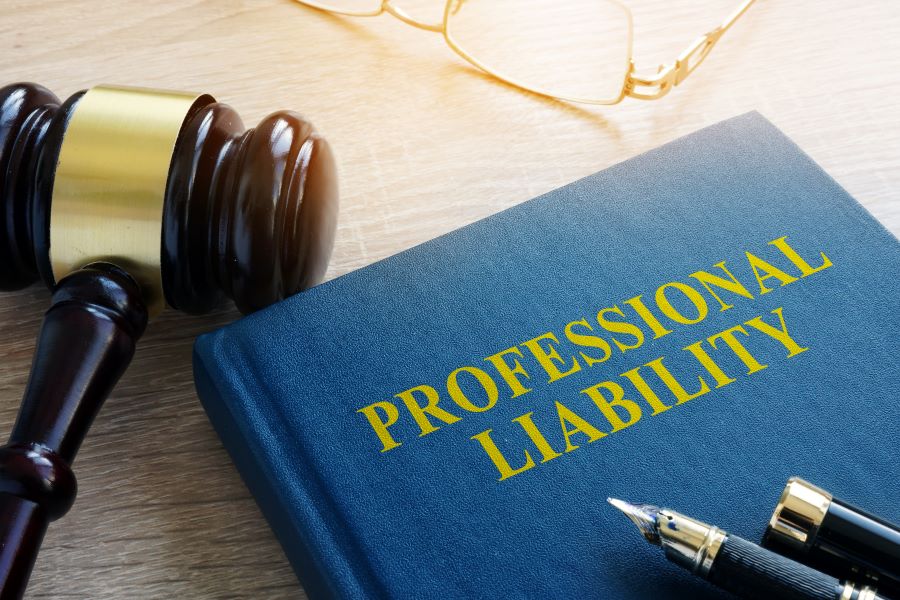Posting Fake Reviews Liability, 25 Things You Should Know
You know that sinking feeling when you realize you have been deceived by a fake review? It’s even worse when you are the business owner facing potential liability for posting such a review. But don’t worry, we’re here to walk you through the intricacies of liability when it comes to posting fake reviews.
Posting fake reviews: liability:
Posting fake reviews can lead to legal liability under federal and state laws, such as the FTC Act and Lanham Act, resulting in fines, damages, and harm to a business’s reputation. To maintain an ethical online presence, businesses should encourage genuine reviews, address negative feedback constructively, and monitor their online reviews regularly.

Discover the legal ramifications of posting fake reviews and how it can lead to liability issues. Unearth the consequences for both individuals and businesses, along with potential preventive measures. Keep reading to find out how to protect yourself and maintain online credibility.
Contents
- 1 Falsified Reviews: Legal Responsibilities
- 2 Suing Over False Review Publications
- 3 Facing Legal Action for Negative Online Feedback
- 4 Lawsuits for Poor Google Ratings: Are They Possible?
- 5 The Legality of Submitting False Google Assessments
Falsified Reviews: Legal Responsibilities
• The Significance of Reviews in a Digital Age
In today’s digital world, reviews play a vital role in influencing consumer behavior. According to a 2019 survey by Qualtrics, 93% of consumers say online reviews impact their purchasing decisions. Authentic positive reviews can lead to increased trust, brand loyalty, and ultimately, sales.
However, the practice of posting fake reviews is negatively impacting the integrity of online businesses and harming consumer trust.
• Defining Fake Reviews and Their Types
Fake reviews are false or misleading statements, comments, or endorsements made with the intention of manipulating online ratings or reputation. There are two primary types of fake reviews:
- Positive: Fraudulent reviews that artificially inflate a product’s or service’s rating
- Negative: False or disparaging reviews aimed at damaging the competitor’s reputation
Both types of fake reviews undermine consumer trust and, as a result, may constitute illegal activity under consumer protection and unfair competition laws.
• Legal Consequences of Posting Fake Reviews
The posting of fake reviews can lead to legal liability under various federal and state laws in the United States. Some of these include:
– Federal Trade Commission (FTC) Act
Under Section 5 of the FTC Act, false or misleading advertising is considered an unfair or deceptive act or practice, which may result in civil penalties or injunctive relief (e.g., requiring the company to cease publication of the fake reviews).
Businesses and individuals who post fake reviews could be subject to significant fines and legal fees for violating the FTC Act.
– Lanham Act
The Lanham Act is a federal law that governs trademarks and false advertising. Under the Lanham Act, competitors who post false or misleading reviews about a company’s products or services may be held legally accountable for any damages or harm caused due to their actions.
– State Consumer Protection and Unfair Competition Laws
Many states have enacted consumer protection and unfair competition statutes that can be used to hold individuals or businesses accountable for posting fake reviews.
These laws typically require that the fake review causes actual harm to the business and that there be a plausible connection between the harm and the false review.
• Repercussions for Businesses
Posting fake reviews not only undermines consumer trust but also leads to significant potential risks for businesses. Some of these repercussions may include:
- Damage to reputation: The discovery of fake reviews can drastically harm a business’s reputation, and as a result, negatively impact sales.
- Loss of trust: Trust plays a crucial role in building successful relationships with customers. Fake reviews may lead to a loss of trust, both among existing clients and potential future customers.
- Legal liability: As mentioned earlier, posting fake reviews can result in legal consequences, including fines and damages, under federal and state laws.
• Recommendations for an Ethical Online Presence
- Encourage genuine reviews: Businesses should encourage customers to provide authentic feedback based on their experiences with the products or services.
- Address negative feedback appropriately: Companies should respond to negative reviews constructively, demonstrating a commitment to improved customer satisfaction and a willingness to rectify any issues that may arise.
- Monitor reviews regularly: Businesses must stay alert and monitor their online presence to ensure the authenticity and integrity of reviews.
- Report fake reviews: Reputable review platforms, such as Yelp or Google, have mechanisms for reporting fraudulent reviews. Use these systems to report any suspected fake reviews to maintain the integrity of your online presence.
• Conclusion
In conclusion, the practice of posting fake reviews poses significant legal risks and potential damage to a business’s reputation.
Genuine customer feedback, the proper response to negative reviews, and actively monitoring the online presence of your products or services go a long way in maintaining an ethical and trustworthy online image. By upholding these practices, businesses can cultivate consumer trust while minimizing the risk of legal liability.
Suing Over False Review Publications
In today’s digital age, online reviews play a crucial role in shaping a business’s reputation. Positive reviews can boost credibility and lead to more customers, while negative reviews can do the opposite. But what if someone leaves a false review? Can you sue for defamation or take legal action?
• Defamation Laws and False Reviews
Defamation is defined as a false statement that injures someone’s reputation. To successfully win a defamation case, the plaintiff must prove the following elements:
- The defendant published a false statement.
- The statement was about the plaintiff.
- The statement was made to a third party.
- The statement caused the plaintiff harm, such as damage to their reputation or business.
In the context of false online reviews, these elements could be satisfied if the review contains blatantly false information that harms the victim’s reputation or business.
– Defamation: Libel vs. Slander
Defamation comes in two forms: libel and slander. Libel refers to written statements, such as false online reviews, while slander refers to spoken statements. Both forms of defamation can lead to legal action, although libel is generally considered more harmful as written statements can reach a wider audience and have lasting effects.
• Legal Remedies for False Reviews
There are several legal remedies available for businesses or individuals who fall victim to false online reviews. Here are some possible courses of action:
– Cease and Desist Letter
Before taking any action, it is recommended to first contact the person responsible for the false review and request that they remove it. If the reviewer refuses, sending a cease and desist letter can be an effective way to demand the removal of the false review.
This letter should outline the defamatory nature of the review, highlight the damage caused, and warn of potential legal action if the review is not removed immediately.
– Suing for Defamation
If the false review remains, the affected party can consider suing for defamation. In such cases, it is crucial to work with an experienced attorney who specializes in defamation law. They can help determine if you have a strong case and advise on the best course of action.
Keep in mind that defamation lawsuits can be costly and time-consuming. Therefore, it is essential to weigh the potential benefits against the costs of litigation. Additionally, it is worth noting that winning a defamation lawsuit does not guarantee the removal of the false review.
In some cases, the court may instead award monetary damages to compensate for the harm caused by the defamation.
– Seeking Help from Review Platforms
Another option is to contact the review platform on which the false review was posted. Many review sites, such as Google Reviews and Yelp, have policies and procedures for reporting and removing false or defamatory content.
However, the success of this route depends on the platform’s willingness to take action, and there is no guarantee the review will be removed.
• Prevention and Best Practices
While taking legal action against false reviews is one approach, prevention, and diligent reputation management can also help mitigate any damage caused by false reviews. Here are some tips on how to manage your online presence and minimize harm:
- Monitor your online reputation and reviews regularly. This allows you to quickly address any negative or false reviews and minimize damage to your reputation.
- Respond to all reviews, both positive and negative. This demonstrates that you care about customer feedback and are addressing their concerns.
- Encourage satisfied customers to leave reviews. This can help counteract the impact of negative reviews and create a more accurate representation of your business.
- Implement strong customer service practices. By providing excellent service, you minimize the chances of receiving negative reviews in the first place.
Reason for Lawsuit | Applicable Legal theory | Potential Damages |
|---|---|---|
Defamation | False statements that harm the reputation of the business | Financial loss, harm to business reputation, emotional distress |
False advertising | Misrepresentation of facts about the product or service | Financial loss, loss of market share, reimbursement for advertising efforts |
Unfair competition | False or misleading information with the purpose to gain an unfair advantage | Lost profits, market share, and damage to business reputation |
Intentional interference with contractual relations | Knowingly interfering with contractual business relationships | Loss of contracts, opportunities, financial damages |
In conclusion, while it is possible to sue someone for leaving false online reviews, it is essential to consider the costs and benefits of litigation before pursuing this route. It’s also crucial to focus on prevention, reputation management, and customer service to minimize any negative impact false reviews may have on your business.
Remember to consult with an experienced attorney to discuss your specific situation and the best course of action.
Facing Legal Action for Negative Online Feedback
Bad online reviews have become an integral part of the internet landscape, and consumers rely on them when making decisions on products or services. As a reviewer, you may be wondering whether you can be sued for expressing your opinions and experiences.
The answer is: Yes, you can be sued for a bad online review. However, several factors are considered before determining liability, and you can take precautionary measures to protect yourself.
• Defamation: Differences Between Libel and Slander
Defamation occurs when someone intentionally disseminates false information that damages others’ reputations. There are two types of defamation: libel and slander. Libel is written defamation, and slander is spoken defamation.
Online reviews, being in written form, fall under libel. If your review contains false statements that can damage a party’s reputation, you may potentially face a defamation lawsuit.
• Understanding the First Amendment and Fair Comment
The First Amendment protects freedom of speech and expression. Courts generally uphold the First Amendment and rule in favor of free speech, especially in matters of public interest. However, the protection does not cover defamatory statements.
In such instances, the fair comment defense comes into play. Essentially, you are allowed to express an honest opinion about a matter of public interest, as long as it is based on truth or facts. For more information on the First Amendment, visit the American Civil Liberties Union website here.
• Consumers vs. Businesses: Public Figures and the Actual Malice Standard
Public figures, like celebrities or politicians, have a higher burden to prove defamation. They must demonstrate that you acted with actual malice. Actual malice means either you knew the information was false or showed reckless disregard for the truth.
Businesses, too, may be considered public figures depending on their size and influence, thereby having to meet the actual malice standard to win a lawsuit.
• Tips for Writing Reviews without Facing Legal Action
– Stick to the Truth
The safest way to avoid defamation lawsuits is to stick to the truth. By merely stating facts, you protect yourself from legal liabilities. Besides, factual information is what potential customers seek in reviews.
– Distinguish Opinion from Fact
Expressing opinions about products or services is entirely legitimate. However, make sure to clearly differentiate between what is an opinion and what is a fact. Back up your opinions with factual evidence to avoid defamation accusations.
– Avoid Personal Attacks
Refrain from making personal attacks against individuals or companies. Your reviews should focus on objective aspects, such as the product’s quality, customer service, and overall experience.
– Edit and Review before Posting
Before publishing a review, double-check your wording, consider the implications of your statements, and ensure you have accurate information. Adhering to clear and concise language reduces the chances of misinterpretations that could lead to legal issues.
• Conclusion: Be Responsible and Mindful
Yes, you can be sued for a bad online review if it qualifies as defamation, but it is not a reason to withhold your opinions and experiences. By following the tips provided, you will minimize the risks of legal action and contribute valuable feedback to consumers and service providers alike.
Lawsuits for Poor Google Ratings: Are They Possible?
Consumer reviews are vital in today’s digital and interconnected world. They provide valuable insights for prospective customers and drive business decisions. However, the question arises – can you be sued for leaving a bad Google review?
Here, we will discuss the legal ramifications of negative Google reviews, instances when a bad review can lead to a lawsuit, and what to consider before posting any review.
• The Legality of Leaving Negative Reviews
First, it’s essential to understand that in many jurisdictions, including the United States, freedom of speech grants the right to express one’s honest opinion. Hence, consumers usually have the legal right to share their truthful experiences and opinions about a business.
However, this freedom comes with certain limitations and responsibilities, which we will discuss further in this article.
– Defamation and the Implications of False Reviews
Defamation is a legal term that refers to when one person injures another person’s reputation through false or malicious statements. If a person posts a negative review that contains false information or is intentionally misleading, the accused can sue for defamation.
In the United States, defamation lawsuits must prove that the statement in question is false, caused harm, and was made without adequate research into its truthfulness.
– The Communications Decency Act
In the United States, the Communications Decency Act (CDA), passed in 1996, provides a certain level of protection for companies hosting user-generated content. This law states that websites or online services like Google, Yelp, and social media platforms cannot be held liable for content posted by their users.
However, this protection does not extend to the person who posted the content. Thus, businesses can still sue the individual responsible for a defamatory review.
• When Can a Bad Google Review Lead to a Lawsuit?
– False or Misleading Information
One common reason businesses consider lawsuits is when a review contains blatantly false or misleading information. For example, accusing a restaurant of serving spoiled food without any evidence or suggesting that a business engaged in illegal activities with no basis can lead to a lawsuit.
– Reviews with Malicious Intent
A review written with malicious intent to harm the reputation of a business can also lead to a lawsuit. For instance, if a competitor posts fake negative reviews in an attempt to turn customers away from a competing business, they may be sued for defamation.
– Breach of Confidentiality or Non-Disparagement Agreements
Some businesses may have their customers sign confidentiality or non-disparagement agreements, which prohibit them from sharing specific information or making negative comments about the company. Violation of such agreements can result in a lawsuit against the reviewer for breaching the contract.
• Recommendations to Avoid Legal Trouble
– Be Truthful and Accurate
One of the best ways to avoid legal issues is to be truthful and accurate in describing your experience with a business. Share specific details about your interaction, such as the product or service you received, the date of your visit, and the staff you dealt with to support your claims.
Providing objective and verifiable information strengthens your review and decreases the likelihood of facing legal consequences.
– Avoid Defamatory Language and Insults
Using insulting or derogatory language can make you vulnerable to defamation lawsuits. Stick to the facts of your experience and avoid making personal attacks against business owners, managers, or employees.
– Edit Reviews if Necessary
If you realize that your review contained false, misleading, or unnecessary information, you should edit or remove it. Businesses are more likely to pursue legal action if the offending review is still publicly visible, and removing the content could de-escalate the situation.
– Know Your Rights
Educate yourself on your jurisdiction’s laws relevant to online reviews and defamation. The Electronic Frontier Foundation (EFF.org) provides a helpful guide for bloggers and online content creators to understand their rights and responsibilities under First Amendment law.
In conclusion, it is essential to exercise caution when posting any online review, including Google reviews. Be truthful, accurate, and objective in your comments, and avoid defamatory language or personal attacks. By taking these precautions, you can minimize the chances of facing a lawsuit for a bad Google review.
Aspect | Information |
|---|---|
Possibility | Yes, you can be sued for a bad Google review if it meets certain criteria. |
Defamation | A negative review can be considered defamatory if it contains false statements that harm the reputation of the business or individual. |
Malicious Intent | If a negative review is posted with malicious intent or an intention to harm the business, it can be grounds for a lawsuit. |
How to avoid legal issues | It is important to be truthful and honest while posting reviews. Avoid posting false statements or exaggerations that can be considered defamatory or harmful. |
The Legality of Submitting False Google Assessments
Everyone relies on online reviews to make informed decisions, and Google helps businesses attract potential customers through its review feature. However, what happens when someone posts a false review on Google that could tarnish a business’s reputation? Is it illegal?
Let’s dive into this topic and learn more about the legality and the consequences of posting fake reviews.
• The Legality of Posting False Reviews
– A Violation of Federal and State Laws
In the United States, posting a false review on Google could be considered a violation of both federal and state laws, specifically the Federal Trade Commission (FTC) Act.
The FTC Act prohibits “unfair or deceptive acts or practices”(https://www.ftc.gov/enforcement/statutes/federal-trade-commission-act), including posting false or misleading statements about a competitor or one’s own business.
Some states have more specific laws against posting fake reviews, such as New York’s ban on “astroturfing” the act of posting fake reviews to influence consumers.
In 2013, New York’s attorney general settled cases against 19 companies for posting fake reviews, resulting in fines totaling $350,000 https://ag.ny.gov/press-release/2013/ag-schneiderman-announces-agreement-19-companies-stop-writing-fake-online-reviews
– Defamation and Libel Laws
Besides violating the FTC Act and state laws, those who post false reviews on Google can also face legal consequences under defamation and libel laws. Defamation, which includes libel (written defamation) and slander (spoken defamation), is a false or misleading statement that damages a person or a business’s reputation.
Those who believe they have been defamed may sue the reviewer for monetary damages https://www.freedomforuminstitute.org/first-amendment-center/primers/libellaw/
– Breaching Google’s Policies
Posting false reviews on Google also violates Google’s own policies. According to Google, reviews should be “honest representations of the customer experience with a business” https://support.google.com/business/answer/3038177?hl=en.
Google prohibits posting fake content, including “writing fake reviews or compensating someone else to write a review” (https://support.google.com/contributionpolicy/answer/7445747?hl=en&ref_topic=7422769)
• The Consequences of Posting False Reviews
– Removal of the Review
Google constantly monitors reviews and may remove those it deems fake or in violation of its policies. Business owners can also flag a false review to Google, which may result in the review’s removalhttps://support.google.com/business/answer/4596773?hl=en&co=GENIE.Platform%3DAndroid.
– Legal Action Against the Reviewer
If a business suffers harm due to a false review, it may take legal action against the reviewer. The business must prove that the review was false and caused damage to its reputation or resulted in financial loss https://www.findlaw.com/injury/torts-and-personal-injuries/elements-of-libel-and-slander.html.
Some reviewers have faced lawsuits and significant monetary judgments due to their fake reviews https://www.cbsnews.com/news/doctor-sues-patient-for-1-million-for-posting-negative-reviews-online/.
– Loss of Trust and Credibility
Anyone caught posting a false review, whether as an individual or a business, risks losing their credibility and the trust of potential customers. This can have long-lasting and far-reaching consequences on one’s reputation and business success.
• Recommendations to Avoid Legal Issues
– Businesses Seeking Reviews
- Encourage customers to leave genuine reviews by offering excellent service and asking for their feedback.
- Address any issues or negative feedback promptly and professionally.
- Do not incentivize or pay customers to leave reviews, as this violates Google’s policies and may result in penalties.
– Individuals Posting Reviews
- Be honest and accurate in your comments.
- Avoid making unsubstantiated claims or exaggerating experiences.
- Remember that your reviews can impact real people and businesses. Be respectful and considerate in your online interactions.
• Conclusion
Posting a false review on Google is not only unethical but could be illegal under FTC and state laws, as well as defamation and libel laws. Additionally, fake reviews breach Google’s policies and can result in various consequences, including removal of the review and legal action against the reviewer.
It is essential for businesses and individuals to prioritize honest and genuine reviews to maintain trust and credibility within the online community.






